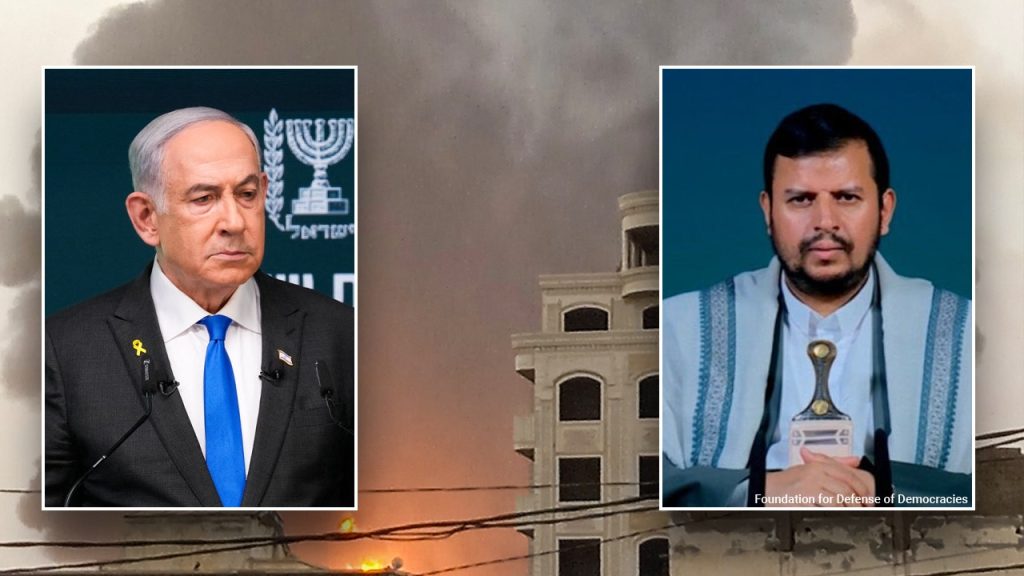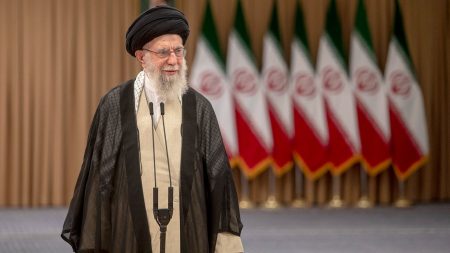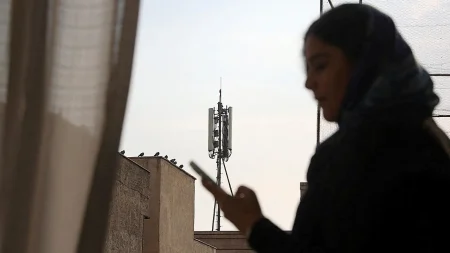Israel Contemplates Expanding Military Action Against Yemen’s Houthis
Amid ongoing negotiations for a ceasefire between Israel and Hamas in Gaza, and a relatively stable truce with Hezbollah in Lebanon, Israel is considering redirecting its military focus towards Yemen’s Houthi rebels. Former Israeli officials advocate for escalating attacks against the Houthis, not only targeting their infrastructure but also their leadership. This potential shift in strategy comes after the Houthis launched numerous missile and drone attacks against Israel, including one that hit an elementary school near Tel Aviv, prompting retaliatory Israeli airstrikes in Yemen.
Targeted Killings and the Challenges of Long-Range Operations
Retired Maj. Gen. Amos Yadlin, former head of Israeli Military Intelligence, suggested that targeted killings of Houthi leaders are a viable option if sufficient intelligence is available. He drew parallels to Israel’s successful eliminations of Hamas leader Yahya Sinwar in Gaza and Hezbollah chief Hassan Nasrallah in Beirut. However, targeting Houthi leadership presents unique challenges. Unlike Hamas and Hezbollah, the Houthis operate in Yemen, a considerably more distant location requiring complex logistical planning for Israeli operations. The extended flight times for Israeli jets necessitate mid-air refueling, increasing the complexity and risk of such missions. Furthermore, accurate real-time intelligence on the whereabouts of Houthi leaders is crucial for successful targeted operations.
Intelligence Gathering and Logistical Hurdles
Former national security adviser Yaakov Amidror emphasized the importance of precise intelligence in carrying out successful targeted killings. He highlighted the need to confirm the exact location of a target before launching an attack. While striking targets in Lebanon is relatively quick due to its proximity to Israel, operations in Yemen pose significant logistical challenges. The distance necessitates meticulous planning, including mid-air refueling and precise ground intelligence. Building intelligence networks and collaborating with partners capable of providing real-time information on Houthi leadership becomes paramount for effective action.
Houthi Threat and Escalation Considerations
The Houthis have demonstrated their capability to strike Israel with missiles and drones, escalating tensions in the region. They have also targeted commercial vessels, posing a threat to international shipping. While the Israeli Air Force (IAF) has the range to strike targets in Yemen, the extended flight times required for such operations place a strain on pilots and resources. Brig. Gen. (res.) Relik Shafir, a former IAF pilot, highlighted the physical and mental demands of long-duration flights. Despite the challenges, the IAF possesses advanced guided missiles with high precision, enabling them to accurately hit targets at considerable distances.
Israel’s Resolve and Potential for Increased Action
Israeli Defense Minister Yoav Gallant issued a stern warning to the Houthis, threatening to target their infrastructure and leadership. He referenced Israel’s previous actions against Hamas and Hezbollah leaders as a demonstration of their resolve. While Israel initially refrained from claiming responsibility for the killing of former Hamas chief Ismail Haniyeh in Tehran, their willingness to take decisive action against perceived threats is evident. Former Mossad head Efraim Halevy emphasized that terrorist activity must be met with a proportionate response and that Israel will escalate its actions if the Houthis continue their attacks.
International Cooperation and Future Strategy
There is a growing consensus among regional and international actors that the Houthis pose a threat to stability in the Middle East. A source close to the internationally recognized Yemeni government encouraged Israel to target Houthi leaders, reflecting a shared concern about the group’s destabilizing actions. Former Israeli national security adviser Eyal Hulata stressed the importance of gathering more intelligence and coordinating with international partners to determine the most effective way to cripple the Houthis’ operational capabilities. The future of Israel’s strategy toward the Houthis will likely depend on the outcome of the ceasefire negotiations with Hamas and the evolving security situation in the region. Prime Minister Benjamin Netanyahu has assured the public that Israel will take decisive action against the Houthis, even if it requires time and strategic planning.














